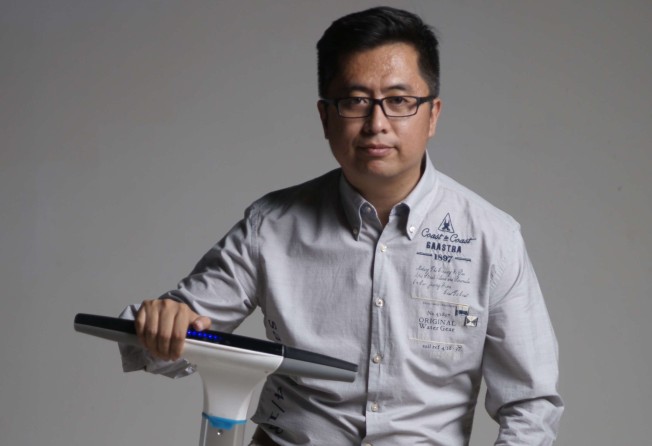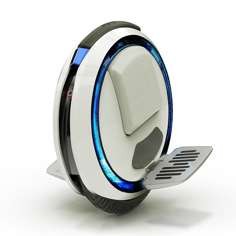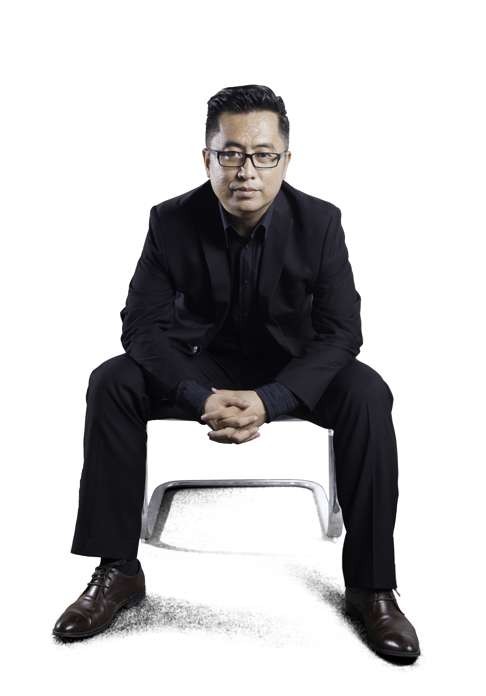Future hangs in the balance for Chinese scooter maker Ninebot, just as CEO hoped
With models starting at 1,999 yuan, the Xiaomi-backed company is hoping to transform the market for personal transport devices

Why walk or drive to the corner store when you can scoot? That’s the question that Ninebot has bet its business on. The company emerged from a nasty legal battle with Segway two years ago by buying the US rival and now holds much of the key technology for personal transport products. Chief executive and founder Gao Lufeng talks with Zen Soo about why he thinks bicycles will be relegated to the gym, how hoverboard makers miscalculated and why the personal robots of the future won’t get far without Ninebot’s patents.
hat sort of problems are you trying to solve with products such as self-balancing scooters?
Studies have shown that almost 50 per cent of car trips are shorter than 5km. People drive to the supermarket to purchase something even if it’s only a short distance away. If these people choose not to drive and use a Ninebot device to travel short distances, this could reduce traffic congestion, lessen pollutionand solve parking problems. Personal transportation deviceshave a place in the market. For other people, who walk to reach their destinations close by, they are not using a very efficient way to get from one place to another. But if they are able to use a device like ours to quickly and efficiently get from their homes to their destinations, it saves them time and allows them to be productive for other activities.
But bicycles are also tools often used in China for travelling short distances. Given how popular bicycles are in China, do you think that consumers would be willing to shell out money for a more expensive option?
A lot of technology companies, smartphone companies for example, are now very focused on user experience. They want to make it wonderful, that so even the laziest, most unmotivated person will still have a great time with their products. With Ninebot, we think the same way. Bicycles are great for outdoors, when you go out with your family and take a ride around the park, butthey are difficult to use indoors. If you drive a car, it’s very difficult to take a bicycle around with you, but this is not a problem for our products such as the Ninebot One or Mini because they are compact and fit easily in a car’s boot. Our devices are so compact that they are convenient to carry around, and can be used anywhere.

Airlines have banned hoverboards from flights after some models exploded and caught fire. Retailers such as Amazon have also pulled certain hoverboard brands from their stores. How has this affected demand and sales for Ninebot and Segway products?
Actually, our products have nothing to do with hoverboards. Hoverboards have no handles. Instead users use their feet to control the device. This is different from the products that we sell. The problem here is that Chinese companies have largely reproduced these hoverboards but with poor quality control and shipped them to be sold in the United States. That is why there are so many safety problems, which in turn taints the entire industry. Airlines are afraid of additional safety incidents and thus have put a blanket ban on all devices, which unfortunately also includes Ninebot and Segway products. I think that the restrictions on the sale and carriage of hoverboards on flights is a good thing. When poor quality products are sold, it is dangerous for consumers. These restrictions help to weed out the bad eggs in the industry.
Right now, when we export products to the United States or Europe, we have been subject to stricter checks, which sometimes delay the shipment by a day or two, but we do not face any problems in terms of exporting products because we have strict quality control. We also have to put a lot of effort into educating our customers on how our products are different from hoverboards, and show them that ours are safe and produced according to strict manufacturing standards. In fact, we are working with several global agencies to determine the quality and manufacturing standards for these devices because we understand this industry very well. As personal mobility machines are still a fairly new industry, no standards were set previously. But once standards are determined and approved, there should not be any problem or airlines to allow the devices on board as luggage, so long as they meet quality standards
Ninebot has co-operated with Intel to produce the Segway Robot, which serves as a two-wheeled scooter that you can use to travel from place to place, and a personal butler with whom you can interact. Why did you decide to diversify from producing just personal mobility devices to developing robots as well?
I believe that robots will become an important trend in the future, and our company has high hopes in succeeding in this industry.Service robots will likely be an important business direction for us. To be effective, robots must be able to move freely. And this is where we have an advantage – we hold essential patents for self-balancing technology, which allows a device to maintain its orientation and balance. If you look at companies which are producing robots, they have issues such as how fast they can respond. Other robots also have issues with how much load they can carry. But our patented gyroscopic self-balancing technology allows robots to respond quickly, and so we are confident that we are well positioned to enter the robot industry. We are currently working on a household robot – one that can interact with you, be your personal assistant and even complete tasks for you.
